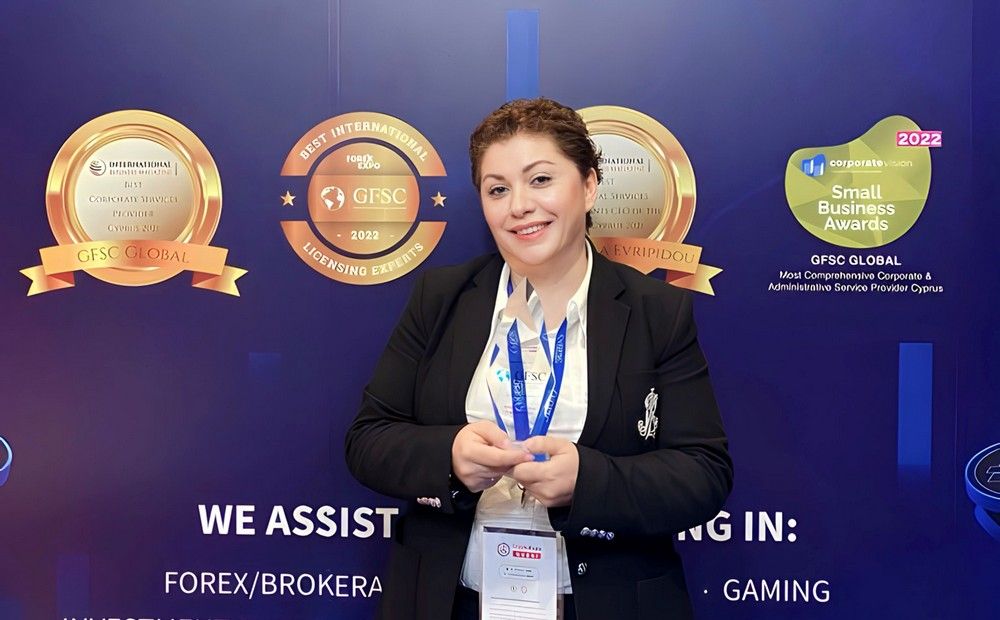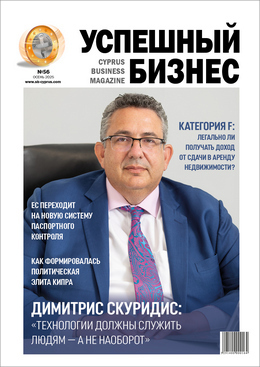With over 20 years of experience spanning across 70 jurisdictions, Isavella Korelidou-Evripidou offers an insider’s perspective on the shifts in Regulatory services, brokerage licenses, the introduction of crypto regulations, and the future of e-gaming and betting in the country. Her insights reveal both the challenges and opportunities lying ahead for investors and businesses navigating Cyprus’ financial industry.
Let us overview, sector by sector, some of the most crucial areas of your expertise. What changes can we expect in the field of brokerage licenses in 2024?
Cyprus continues to lead with a significant number of Brokerage companies in Europe, especially those dealing with CFDs. However, due to newer, stricter regulations from European bodies like ESMA, the industry faces challenges. Some countries are increasingly hesitant to work with CFDs due to their high-risk nature. As a Licensed award-winning Service Provider, we attract many investors to Cyprus.
We’re observing a shift in Cyprus, with companies beginning to include or switch to classical brokerage. This transition allows clients to trade on stock markets, a less risky option compared to CFDs. It’s a positive development that broadens the choice for clients seeking reliable brokerage firms.
How about the cryptocurrency field? Are there any significant legislative changes?
Absolutely. This year we have seen the implementation of the MiCA regulation (Regulation 2023/1114), which ratifies the way the Crypto industry should be regulated. This regulation was much needed. While it introduces certain restrictions, it also means that compliant companies can establish greater trust with their clients. Overall, it’s a step forward for the industry.
What’s on the horizon for investment fund licensing?
Cyprus is very attractive to Investment Funds structures, where a new type is potentially arriving in 2024. These new structures are expected to be more appealing to investors, offering innovative investment opportunities. It’s an exciting time, with potential advancements that could significantly enhance the attractiveness and efficiency of investment funds. The future of investment fund licensing is characterized by a dynamic and evolving landscape, shaped by technological advancements, changing investor preferences, and regulatory reforms. Investment fund managers and regulators must adapt to these changes to ensure that the industry remains innovative, competitive, and well-regulated.
Could you share insights on the e-gaming and betting field in Cyprus and any upcoming changes in licensing?
Cyprus has no regulation for e-gaming yet, but fully regulates the Betting, which is very attractive to many investors who want to establish their business on the Island and we assist them with that.
Currently, Cyprus Betting licenses are regulated by the National Betting Authority (NBA), where 2 types of licenses are given: Class A and Class B. Class A requires to have a fully operational office in the Country, where the Class B allows to run the business online.
Another significant addition we’re anticipating is the inclusion of online gaming, which would represent a major development for Cyprus. However, due to a history of unregulated online casinos, the current approach to legislation and regulation is quite stringent.
What activities fall under the category of online gaming?
Online gaming encompasses a wide range of activities that involve playing games over the internet. These activities can be broadly categorized into different types of games, such as multiplayer games, single-player games, and casual games.
What makes Cyprus attractive to EMI businesses, and how does Cyprus compare to competitors like Malta?
Cyprus, a small island country in the Eastern Mediterranean, has emerged as an attractive destination for EMI (Electronic Money Institution) businesses. Cyprus faces competition from other European countries, particularly Malta, which is also an attractive destination for EMI businesses. Cyprus is an attractive destination for EMI businesses due to its regulatory environment, tax incentives, geographic location, skilled workforce, and stable economy. However, it faces competition from countries like Malta, which has a more established FinTech sector and a more favorable tax regime. Both countries offer unique advantages to EMI businesses, and the choice between the two will depend on the specific needs and objectives of each business.
GFSC Global is an award-winning, International Corporate and Legal Services Providers, licensed in the EU and other jurisdictions, with over 20 years of experience in Corporate, Legal, Immigration, Gaming, Financial, Crypto/STO/ICO, Banking and Accounting services. Its main goal is to offer a full range of high quality, tailor-made services to our corporate and physical clients worldwide through our qualified team of professionals.
Our mission is to provide a full package of services as a one-stop-shop solution, including company formation, re-domiciliation, opening of bank accounts, administrative services, immigration, legal support, licensing (Forex/Brokerage, Investment Funds, Crypto, STO/ICO, Betting/Gaming, Payment services/EMIs, Banking) and post-licensing services (Compliance, AML, Reporting, Risk Management, Reporting, Internal, and External Audits).
Our global presence spans over 70 jurisdictions, giving us a nuanced understanding of international legislation and the ability to craft cross-jurisdictional structures for our clients.







